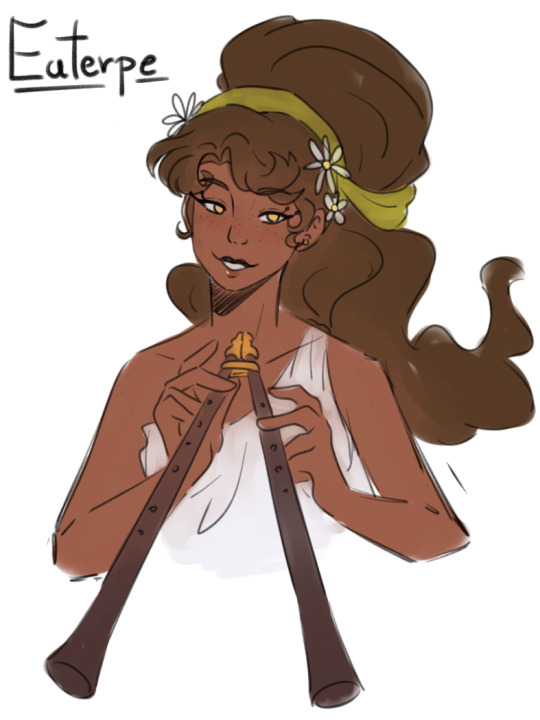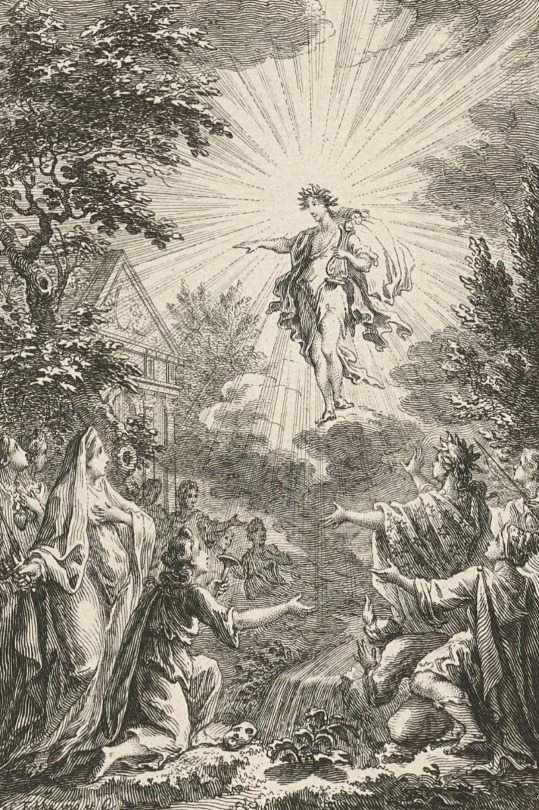#Apollo and the muses
Explore tagged Tumblr posts
Text

Heinrich Maria von Hess (German, 1798-1863) Apollo and the Muses, 1826 Neue Pinakothek, Munich
#Heinrich Maria von Hess#German art#germany#art#fine art#european art#classical art#europe#european#fine arts#oil painting#europa#mediterranean#Apollo#Apollo and the muses#greek mythology#mythological art#mythology#100s#greece#hellenistic#hellenism#hellenes
36 notes
·
View notes
Text
from Apollo and the muses themselves
You will not use AI to get ideas for your story. You will lie on the floor and have wretched visions like god intended
161K notes
·
View notes
Text
✨️THE NINE MUSES✨️






Calliope (Muse of epic poetry)
Clio (Muse of history)
Polyhymnia (Muse of sacred hymn)
Euterpe (Muse of flute playing)
Terpsichore (Muse of dance)
Erato (Muse of erotic poetry)
Melpomne (Muse of tragedy)
Thalia (Muse of comedy)
Urania (Muse of astronomy)
#apollo#nine muses#muses#greek gods#greek mythology#toa apollo#apollo toa#trials of apollo#character design#art#apollogist
2K notes
·
View notes
Text

"Idle Musing" XDDD This panel is taking forever but it's turning out nice^^
2K notes
·
View notes
Text

Apollo appears to the Muses.
By Simon Fokke (1722 – 1784)
420 notes
·
View notes
Photo
Juan Soriano (Mexican, 1920-2006), Apolo y las musas [Apollo and the Muses], 1954. Oil on canvas, 52 x 81 ½ in.

Juan Soriano (1920-2006) — Apollo and the Muses [oil on canvas, 1954]
339 notes
·
View notes
Text

OMG YOU GUYS LOOK AT LITTLE PIXEL KLAPOLLO ON THE BACK OF THE SWITCH CASE I'M PASSING AWAY
#wahhhh they're so cute!!#malewife musings#apollo justice#apollo justice trilogy#klavier gavin#klapollo
3K notes
·
View notes
Text
Why, exactly, are 7 spider lilies in Phoenix's hospital room in 4-2? Who sent these to him? The more I look at the possible meanings, the more I'm confused. Is it supposed to be perceived as Kristoph sending a message to 'please kindly die' or something? I researched a bit, in hanakotoba it has many meanings (death, loss, separation, abandonment), but what I found most curious is that the entire plant is actually... poisonous. Also 7 spider lilies... because 7 years disbarred? ...It was definitely Kristoph, wasn't it...

572 notes
·
View notes
Note
I have to wonder if Will being into space themed sci-fi specifically is like. A weird side effect of being an Apollo child. He's the sun god and the first major NASA expedition was called Apollo and now sometimes his kids get Space as a special interest. Doctor Who, Dune, and Hitchhiker's Guide to the Galaxy are also probably up his alley.
I like this thought a LOT and am immediately incorporating it into my Will hcs.
#will solace#pjo#riordanverse#headcanon#headcanons#Anonymous#ask#hilariously i have actually talked about space-themed apollo kids before#cause apollo and artemis share a lot of overlap in their aspects#i cant believe i forgot about it for sci-fi stuff#of COURSE an apollo kid would be a scifi nerd. god of the sun AND god of the muses (arts = creativity/invention and writing/fiction)#facepalming myself for blanking on that
154 notes
·
View notes
Text
Altoid Altars
⋆⁺₊⋆ ━━━━⊱༒︎ • ༒︎⊰━━━━ ⋆⁺₊⋆
1: Melpomene, Thaleia | 2: Apollon, Athene 3: | Tykhe




1 2 3
Finally finished Lady Tykhe’s! I *might* make one for Lady Aphrodite (Votive Offering).

#hellenic pagan#apollon devotee#hellenic polytheism#hellenism#helpol#paganblr#paganism#hellenic paganism#greek mythology#muses#melpomene#thalia#thaleia#athene#athena devotee#apollon worship#athena worship#lady athena#lord apollo#apollo deity#athena deity#altoids#altar#pagan altar
93 notes
·
View notes
Text

Heinrich Maria von Hess (German, 1798-1863) Apollo and the Muses, 1826 Neue Pinakothek, Munich
#Heinrich Maria von Hess#German art#germany#art#fine art#european art#classical art#europe#european#fine arts#oil painting#europa#mediterranean#Apollo#Apollo and the muses#greek mythology#mythological art#mythology#100s#greece#hellenistic#hellenism#hellenes
47 notes
·
View notes
Text

For two people that broke up almost 2000 years ago, they sure do have the vibe of that insanely toxic couple on your college campus that you keep getting second-hand embarrassment from as you pass by. Idk what the modern equivalent of drowning your ex in a bathtub would be tho.
#trials of apollo#toa apollo#lester papadopoulos#toa commodus#copollo#apollart#hey siri play Bad Idea Right? by Olivia Rodrigo#hey siri play Get Him Back! by Olivia Rodrigo#hey siri play The Take Over The Breaks Over by Fall Out Boy#hey siri play Blinding Lights by the Weeknd#hey siri play Time is Running Out by Muse#hey siri play I'm Your Man by Mitski (EMPHASIS ON THIS ONE HOLY SHIT)#hey siri play Decode by Paramore#hey siri play Francesca by Hozier#hey siri play Please Please Please by Sabrina Carpenter#hey siri play I Know Those Eyes/ This Man is Dead from The Count of Monte Cristo#hey siri play Birds of a Feather by The Civil Wars#hey siri play Stalker's Tango by Autoheart#hey siri play Arms Tonite by Mother Mother#hey siri play Break Your Little Heart by All Time Low#ok anyways hope y'all liked this impromptu copollo playlist in the tags lmao
329 notes
·
View notes
Text
“Apollo has such a difficult love life 😔” he has nine sisters baddies waiting for him at home and maybe even a resurrected Hyacinthus. I’m sure he’s fine lol
#greek mythology#ancient greek mythology#greek pantheon#greek goddess#muses#Apollo#hyacinthus#apollo god#apollo x hyacinthus#calliope
83 notes
·
View notes
Text
The males who've crossdressed had certain reasons to do so - Dionysus and Achilles to hide their identity, Heracles because he was a slave - but I've not yet come across any reason given for Apollo to have done that too. Hyginus mentions that Apollo wore women's gown, but he doesn't tell us why.
Just an observation.
#Apollo#I don't think Apollo needed to be hidden as a child#if anything all his childhood stories are about him getting himself into the spotlight#so I imagine he just vibed with women's fashion a lot#I mean he is surrounded by them - his mother the muses#and apparently a connection has been made between music and effeminacy#so that could be why#mine#apollo info
152 notes
·
View notes
Text
Can't wait for that pivotal moment in hades 2 endgame/postgame where Melinoe flat out tells Persephone or a house member that she didn't save the House cause she loved them but because it was her Purpose.
110 notes
·
View notes
Text

Apollo with Athena surrounded by the Muses
Design for a ceiling decoration by Biagio Rebecca
#apollo#apollon#athena#the muses#greek mythology#greek gods#painting#ceiling painting#hellenic polytheism
278 notes
·
View notes